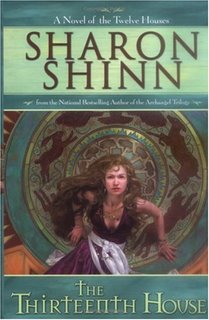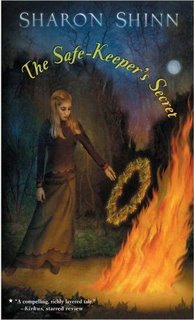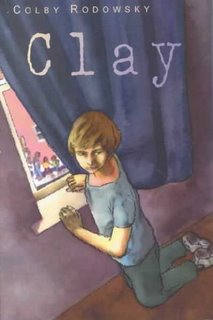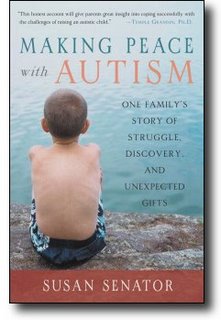The Elder Gods, by David & Leigh Eddings
 In a land held sacred by the Elder Gods, a bug-like creature called the Vlaugh prepares to take control. The Elder gods are forbidden to kill and have always allowed nature to take its own course, but this time, if they do nothing their sacred land will be overrun. In their desperate attempt to save the land of Dhrall, they wake up the younger gods from their rest, but in a state of infancy resembling mortals. As they wait for the younger gods to grow up, they entice the outlying nations to come to their aid with promises of great riches. The pirate-like people from the land of Maag join along with the Maag's enemies, the Trogite legions, to defeat the Vlaugh.
In a land held sacred by the Elder Gods, a bug-like creature called the Vlaugh prepares to take control. The Elder gods are forbidden to kill and have always allowed nature to take its own course, but this time, if they do nothing their sacred land will be overrun. In their desperate attempt to save the land of Dhrall, they wake up the younger gods from their rest, but in a state of infancy resembling mortals. As they wait for the younger gods to grow up, they entice the outlying nations to come to their aid with promises of great riches. The pirate-like people from the land of Maag join along with the Maag's enemies, the Trogite legions, to defeat the Vlaugh.
I thought this book ended really abruptly. It reminded me of a parent that got tired of reading a bedtime story and concluded it by saying... "The bad guy suddenly died of a heart attack and the princess was free." That being said, I really enjoyed the book. The character development made for a great read, despite the weak finish. When the enemy nations came together outside their normal circumstances, they developed many new innovations by working together in friendship. To me, this was a testament to the progress that could be achieved if we banded together in brotherhood instead of hording our technologies.
I have read 3 of the 4 books in The Dreamers series, and so far all of them end in this abrupt way, but as the series progresses, this becomes not only expected, but adds an element of excitement and anticipation for the revelation of why these things happen in future books.
All in all, I'd recomend this as a nice light read in the fantasy genre. A great choice for when you want an adventure without the work of figuring out intricate themes and plotlines.
3 Stars











